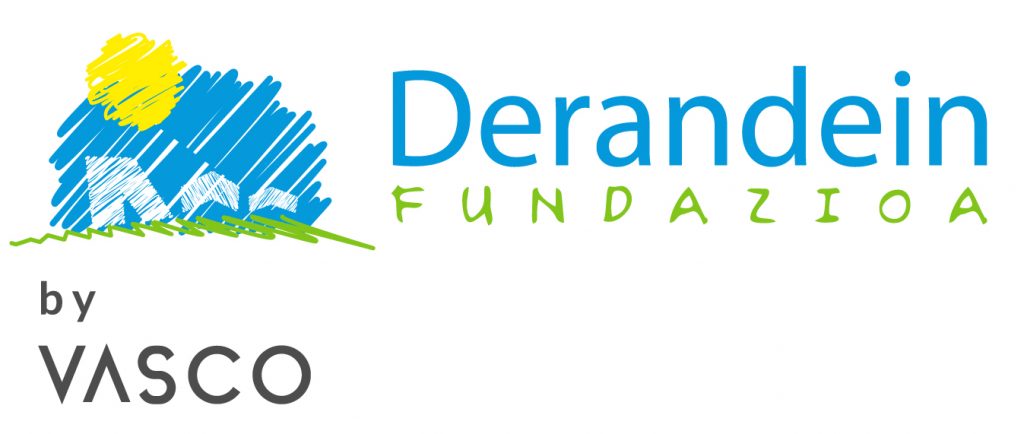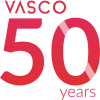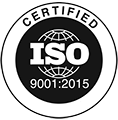Below you can choose which kind of cookies you allow on this website. Click on the "Save cookie settings" button to apply your choice.
International Day for the Eradication of Poverty. Olatz Landa.
To mark the International Day for the Eradication of Poverty, we spoke with our colleague Olatz Landa, Project Manager at Fundación Derandein, to learn first-hand about the work being done in Africa.
– 17 October is the International Day for the Eradication of Poverty. What does this day mean?
This day reminds us that around 1.3 billion people in the world are living in multidimensional poverty. They lack access to basic rights such as food, drinking water, or education. Poverty is not just an economic issue. We are talking about a multidimensional phenomenon that requires understanding of its causes and consequences, particularly in a globalised and interconnected world, where our way of consuming, producing, and living has consequences not only in our immediate surroundings but also in other parts of the world.
Poverty is just the consequence of violations of internationally recognised human rights. In the words of former United Nations High Commissioner for Human Rights, Louise Arbour, “the denial of human rights is inherent in poverty”. It is therefore an obligation for all societies to reduce and eradicate it.
These are people who are denied their dignity and equality. This year, in particular, commemoration of this day focuses on the importance of dignity, solidarity, and listening to the most disadvantaged. Giving them a voice is key; it is a right that we must recognise and ensure, raising the profile of existing problems and how they affect them.
– Poverty is undoubtedly one of the most serious problems Africa faces. Here at VASCO and Derandein, we try to solve the problem and mitigate the effects of poverty on the population. How do we try to combat it?
The mission of our foundation is to improve the living conditions of the most disadvantaged people and territories in Sub-Saharan Africa. We collaborate with local African organisations working on the ground to identify the projects to be developed in their local contexts. They know their reality best, the challenges they face, the opportunities for collaboration and partnership. As well as the best strategies to work collaboratively, through co-responsibility.
Strengthening the capacities of local organisations and communities so that they can claim their rights and drive their own development is undoubtedly one of the necessary strategies in the fight against poverty.
The projects we support are based on the fulfilment of basic human rights, through some of their dimensions, such as providing necessary equipment and trained and well-paid teachers in schools; the development of training content adapted to the local context and emerging issues; or access to quality affordable health care.
It’s about putting people who are in situations of poverty at the centre of every process, and it involves raising their awareness of their own rights. Empowering them by strengthening their capacities and confidence so that they can demand and secure those rights.
– Which areas of Africa are we currently working in?
We are currently working in 4 countries: Kenya, Ethiopia, Tanzania, and the Democratic Republic of Congo.
In each of these countries we are concentrating our interventions in regions or areas that are most disadvantaged, such as North Turkana in Kenya. An area that is hard to access, considered an arid and semi-arid zone; therefore, droughts are the main obstacle to development in the area.
In Ethiopia , we are working in the Tigray region , which is currently experiencing armed conflict that has resulted in deaths, rape, and the displacement of thousands of people, in addition to the destruction and looting of basic infrastructure.
In some cases, we are talking about remote environments where there are no basic services such as health centres or public clinics, schools, or water supply in miles around. Contexts where there are no programmes that provide any kind of protection to highly vulnerable groups such as street children.
And we are also talking about fragile states, such as the Democratic Republic of Congo, involved in a long, armed conflict and plunged into a deep social and economic crisis that has led to unknown patterns of violence, poverty, and exclusion.
– Which are our main areas of action?
We are intervening in areas such as education, food, water, and health. Basic rights that have been internationally recognised and which we view as the platform for our work and as a necessary minimum for justice, understood in terms of social justice, to become a reality.
Undoubtedly there could be many areas where work could be done, more so in Africa. But these are the areas of action in which Derandein has developed more experience and knowledge over the years.
These areas are also included in global development frameworks such as the Agenda 2030 for Sustainable Development , which set specific goals and targets we are working to achieve. These are Hunger and Food Security (SDG 2), Health and Well-being (SDG 3), Quality Education (SDG 4), and Clean Water and Sanitation (SDG 6).
– How do we contribute to developing the projects we are working on?
All the projects we support are developed by local African organisations, which, on the basis of a context analysis, devise development projects that seek to ensure access to and the fulfilment of basic rights. These organisations are familiar with the idiosyncrasy of the country, its culture, languages, and customs.
Our aim is to support them and provide them with the few resources we can offer, so that they are the ones leading and driving their own development. In all these years we have had the opportunity to see and learn first-hand about the work carried out by these organisations. We visit the projects to check the situation and to see the results obtained from their projects, and we also talk to various local partners.
We have to say that the work done by these organisations is laudable. With few resources, they are having a major impact, such as: local communities, with such entrenched customs and traditions, are taking on sustainable productive activities that they have never developed before, managed with structures of equal governance; and local governments are committing resources to improve the quality of basic services and infrastructure, such as a school in Kenya.
– Tell us in detail about the latest projects we have launched.
Currently, there are several active projects that we are supporting. In Ethiopia, given the conflict situation in the Tigray region, without access to basic services or communication, we are providing humanitarian aid, working to ensure access to housing and food and the health of older people (one of the most vulnerable and forgotten groups in these situations).
In Kenya we are working on food security, mainly through a project that introduces new productive activities such as beekeeping, in a desert area that is difficult to access to the north of the country, in Northern Turkana. In this region, we have also been facilitating access to water in recent years, by drilling wells that make it possible not only to obtain drinking water, but to develop agricultural practices and keep livestock.
In Tanzania, our work is focusing on the development of a school garden that will make it possible not only to incorporate new foods into the diet provided to street children who are served by our local partner, but also provide an opportunity to develop new skills and knowledge on nutritional health, health care, and the environment.
In the Democratic Republic of Congo, we support access to infant, primary and secondary education in one of the most disadvantaged neighbourhoods in Kinshasa. Now , more than 500 children are attending this school. This year, we have also secured access to computers.
The digital world with all its advantages does not reach everyone in the same way. African countries have less access among children and teenagers. In the particular case of the DRC, Internet access according to the “Digital 2020 Report, Hootsuite et We Are Social” is 19%. There are no official figures for access to computers and the Internet in schools, but unofficial sources indicate that it is only around 6 per cent of schools across the country, which places children and young people in a position of great disadvantage and inequality in a digitised world.
– The most vulnerable groups we work with are mainly children and young people, women, displaced persons and refugees, and the elderly. What projects, for example, are we carrying out with regard to children and women?
In relation to children, for example , in Tanzania we work with street children. 44.4% of the population in Tanzania is under the age of 15, making them a significant part of the population. Since the early 90s, the country has witnessed a steady increase in the number of children living and working on the street. They are at increased risk of being victims of violence that can lead to emotional, physical, and reproductive health problems or nutritional, housing, and educational deficiencies.
They are by far the most abused and raped. Although there are some grassroots social organisations working with orphaned children in the area of intervention where we work, in Karatu, none of them work specifically with street children and those at risk of homelessness. The lack of resources and community response, therefore, demand that we prioritise this group because of their extreme vulnerability and neglect.
In Kenya, for example, the Turkana community is a patrilineal group, where women occupy a marginal place in decision-making. However, it is women who are taking on an active role in the local development of communities, as part of the decisions taken within the framework of the productive projects we support.
As Turkana women, responsible for the hard tasks of survival, they are the most aware that the lack of basic education prevents them from having other alternatives in life, apart from the traditional dependence on livestock. And it is they who are demanding the fulfilment of the right to a quality education for their sons and daughters.
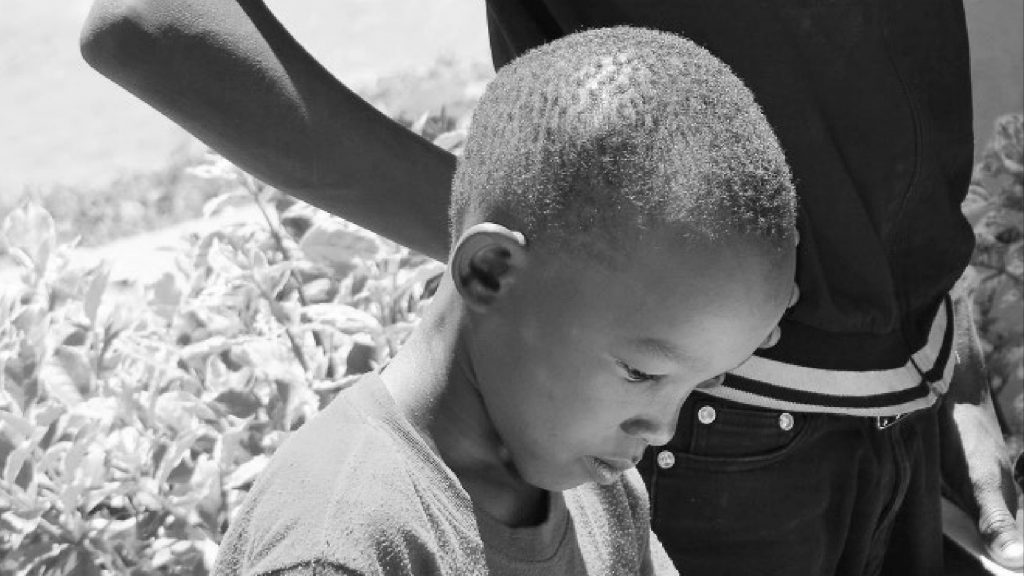
– As well as working on projects with local African organisations, our foundation carries out a different kind of work among the Basque population. What activities are we doing to raise awareness about the reality of these African countries?
In addition to development cooperation and humanitarian aid, we inform and raise awareness about inequalities and the defence of human rights in our immediate surroundings here. We believe that only through understanding and critical analysis of the causes and consequences of poverty and the inequalities in which people live in sub-Saharan Africa will it be possible to build societies conducive to social transformation.
We collaborate with different platforms in the development of local-level actions, such as the World Campaign for Education. This is an international coalition that was born in 2000, made up of NGOs, education unions, schools, and social movements that we mobilise to demand full compliance with the international commitments signed by the states, to ensure access to quality education for all people around the world.
In Euskadi, we work with schools, education faculties, recreation groups and other organisations within the Basque Country. And since 2005, we have also been organising central acts of mobilisation and protests in various towns and villages in the Basque Country, such as Bilbao, Gasteiz, Donostia, Eibar, Santurtzi and Arrasate.
In addition, we are part of the Pro-Africa Group, a consortium of organisations from Euskadi and Navarra with a presence in Africa that was established in 2005 in order to improve knowledge about Africa in our local area, both within its members and in Basque society and institutions. We participate in different spaces with different administrations (Provincial Councils, Town Councils, and the Basque Agency for Development Cooperation) to generate an impact on the need for instruments and strategies that are in line with the reality of sub-Saharan Africa.
Furthermore, at Fundación Derandein we have given various presentations over these years on issues such as women in Africa and the Sustainable Development Agenda 2030. We also give talks on Africa in schools as part of the Hirikide programme led by Bolunta, an organisation that promotes volunteering and social participation in Bizkaia.
And since 2017, every year we organise the Derandein Astea in Amorebieta-Etxano. In this event, various activities such as workshops and exhibitions take place over the course of a week. The aim of that week is, on the one hand, to give back to the citizens of Amorebieta-Etxano for their commitment and support for the development of the most disadvantaged peoples of sub-Saharan Africa; and, on the other hand, to present to the people of Zornotza information about the reality in Africa and the work of Fundación Derandein in the region.
The week closes with the Mendi Martxa hike, which passes through the neighbourhood after which our foundation is named, Derandein, where some members of the Board of Trustees have maternal roots. This event is sponsored and organised with the support of numerous local entities. Unfortunately, the COVID-19 pandemic has not allowed us to do any of these activities for nearly 2 years now given the restrictions. But they’ll be back.
– How does VASCO collaborate with the foundation?
VASCO’s collaboration is not only limited to the financial contribution it allocates each year. You also collaborate with other resources such as the office, equipment, and corporate volunteering. Many of the people employed at VASCO contribute your time, carrying out administrative tasks, computing tasks, and in other areas.
This collaboration comes from the consideration that all individuals and actors, both public and private, can contribute to building societies that are fairer, more sustainable, and more inclusive. There is no doubt that more and more companies are seeking to contribute to the sustainable development goals set out in Agenda 2030.
When we began our journey in 2007 in Ethiopia, Tanzania, and Kenya, we were faced with a new scenario, becoming aware of a reality very different from ours. The foundation wanted to do its bit by supporting local African organisations in their goal of improving the living conditions of individuals and collectives who did not have access to such basic things as education or food.
The road we have travelled down since then has not been easy. It has been an important learning curve that has helped us to see even more clearly the need to continue our work. There are many people and public and private organisations that have relied on our foundation during these years and on the skills and expertise of the organisations we are working with on the ground. We would like to thank all of them for their support and hope that we can continue down this road together.
Thanks to the contribution we receive from VASCO, which makes it possible to cover other general expenses of the foundation, such as staffing costs, infrastructure, communication, and fundraising expenses, 100% of the aid and donations we obtain go to the projects we support in the field, covering the direct and indirect costs of each project.
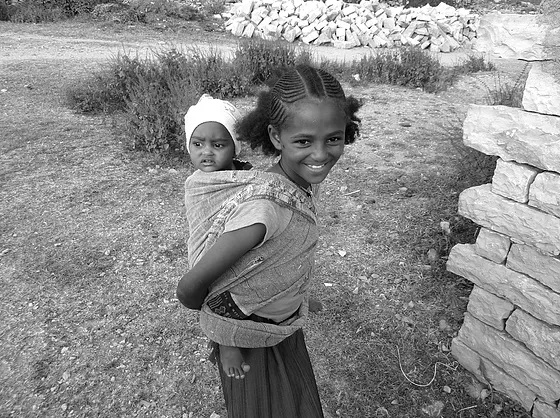
– How can people collaborate with our foundation?
There are many different ways of collaborating. It can be a one-off donation, or you can become a partner, whether you are a private individual or a company. If you also want to be a more proactive agent for change, you can collaborate as a volunteer and contribute your knowledge, skills, resources, or time.
– What new projects are we thinking about for the future?
For some time now, we have been witnessing some profound transformations affecting all spheres, public and private, in a strongly interconnected global and local framework. A complex reality, with a future that is difficult to predict and vulnerable to unforeseen events, as we have seen recently with COVID-19.
This reality highlights the shortcomings, but also the strengths of current public systems in many countries, but above all it makes visible the challenges facing the most vulnerable people, collectives, and territories, particularly in Africa.
The defence of human rights and, consequently, the duty of solidarity represent a great challenge in this context. Not only for public actors, as the main guarantors of fundamental rights and freedoms, but also for other actors that must assume our joint responsibility in this scenario. And one clear example is the climate change we are experiencing.
We will continue to work to reinforce those values that underpin the foundations of a society in which all individuals and collectives see their most basic rights, such as education, health, food, and access to water, fulfilled.
And within the framework of these interventions we want to work on the introduction of urgent cross-cutting aspects in their processes such as climate change, bringing on board new allies who have an interest in generating positive impacts in this regard. We encourage all of them to contact us to learn more about Derandein and to explore possible partnerships and collaborations that we can establish through humanitarian joint responsibility.
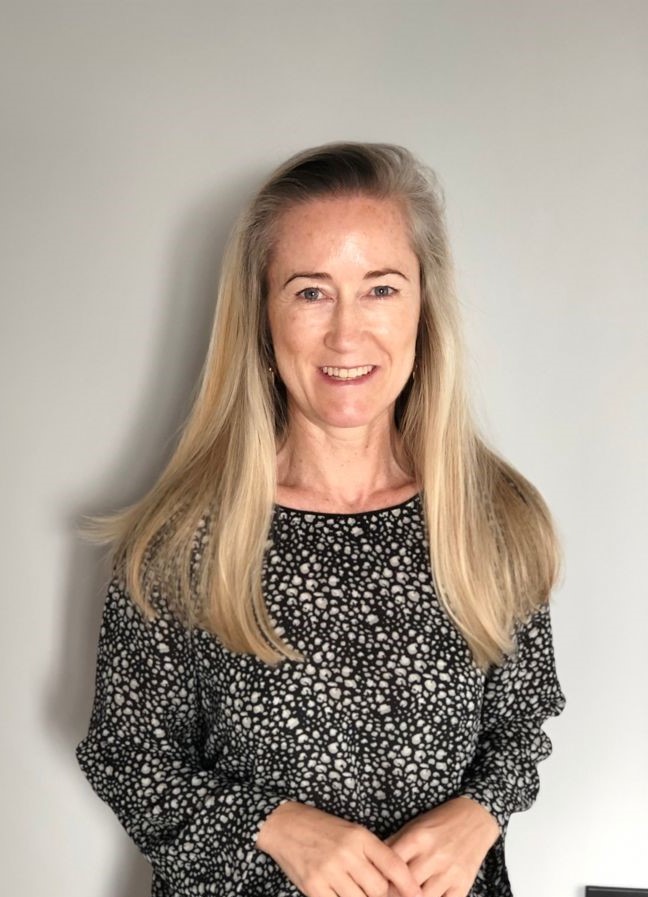
Olatz Landa
Project Manager at Fundación Derandein
